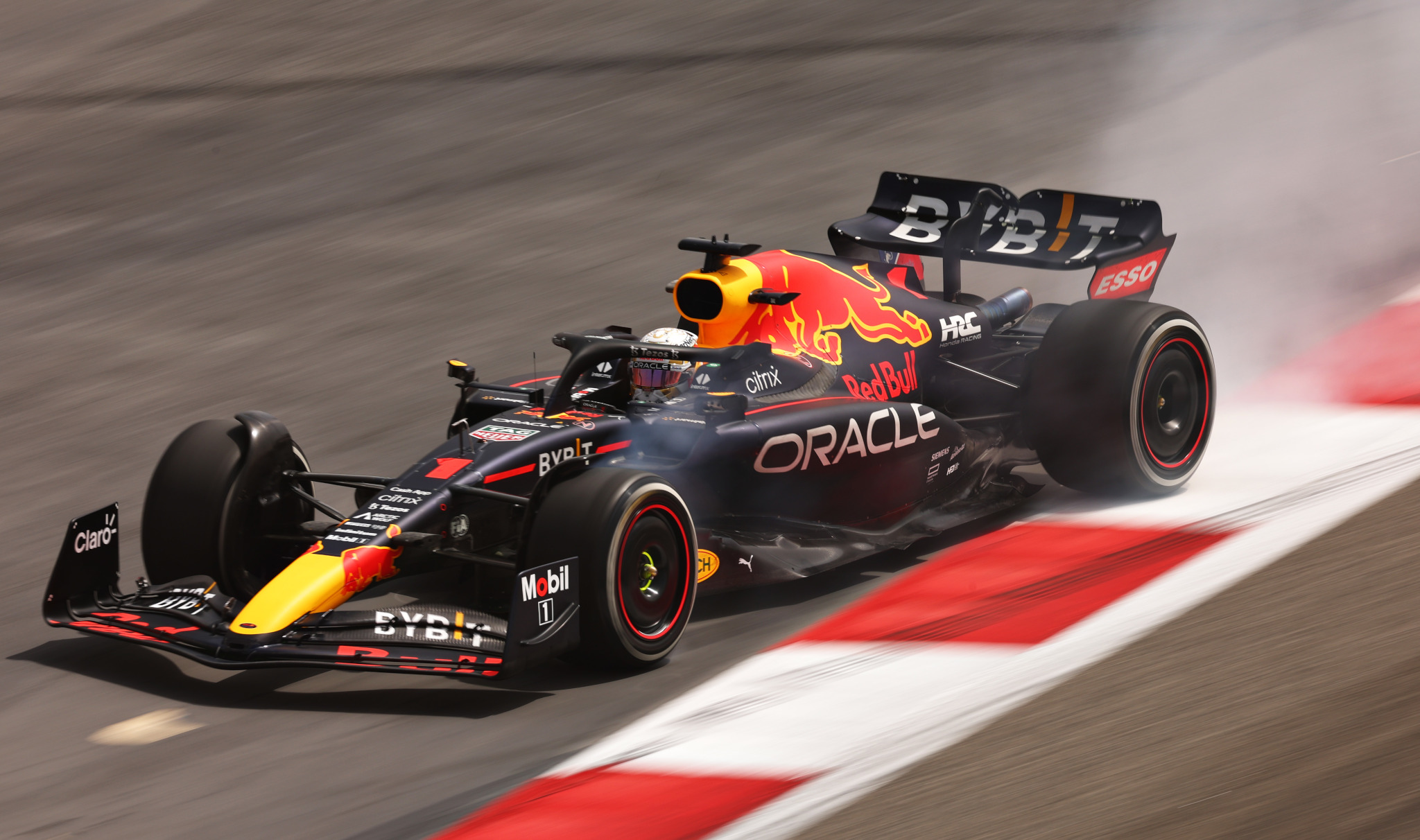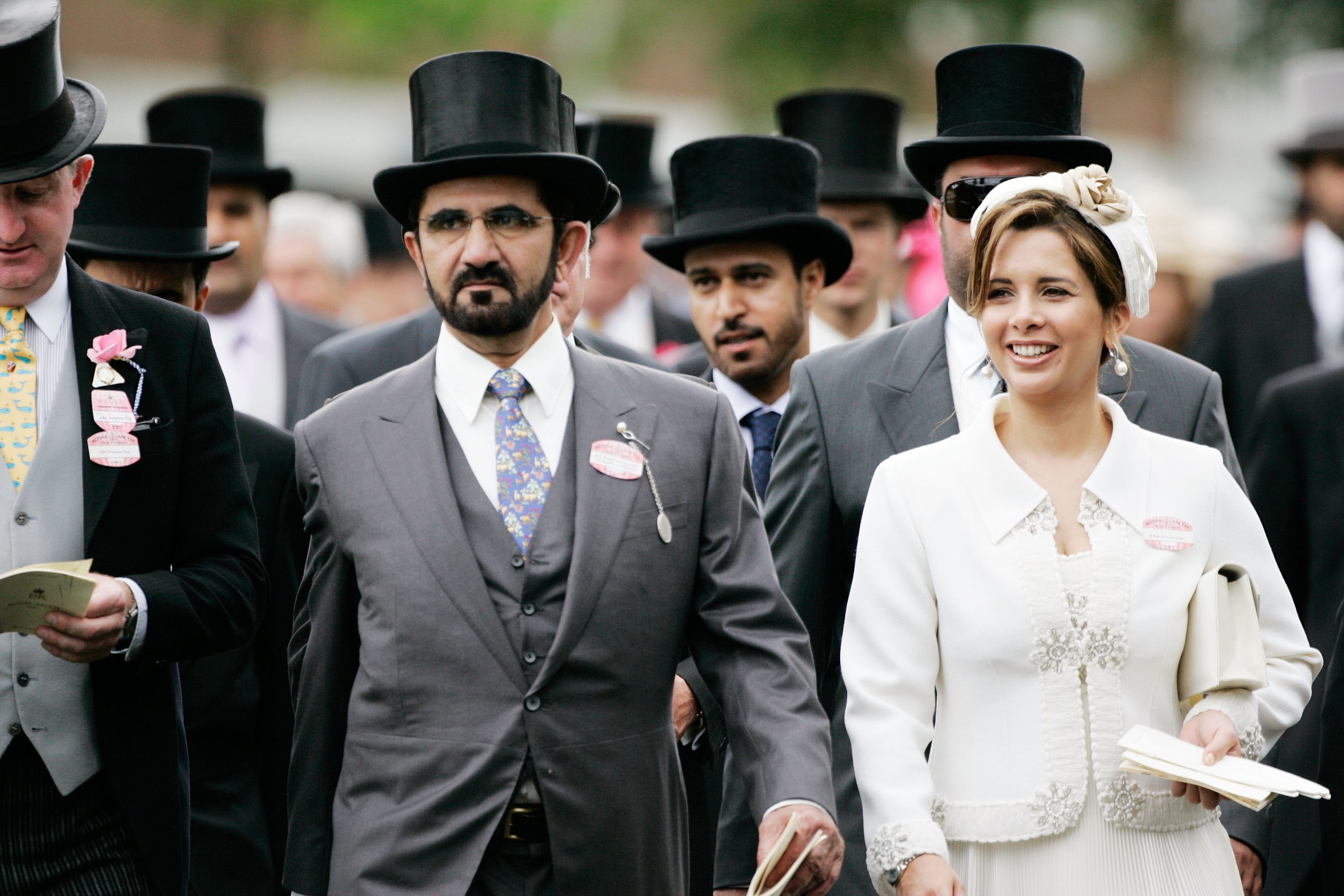“When a country is at war, it is not right to race there.” That was Max Verstappen’s commendable reaction to Vladimir Putin’s illegal invasion of Ukraine.
The sentiment was shared by almost all his fellow Formula One drivers, who posed for a picture in front of a Ukrainian flag wearing “No War” T-shirts.
F1 organisers listened to the drivers’ concerns. The Russian grand prix was cancelled. Uralkali, the Russian fertiliser giant, was dropped as title sponsor of the Haas F1 team. Nikita Mazepin, whose dad controls Uralkali and is a Putin crony, was sacked as a Haas driver.
No one can now claim that Formula One is not political. Which makes Verstappen’s anti-war stance all the more interesting. When he won the title in December, he did so on the track at Abu Dhabi, capital of the United Arab Emirates (UAE).
That’s a Gulf dictatorship which, together with its autocratic allies Saudi Arabia and Bahrain, is bombing Yemen. They’ve been at war there since 2015, creating the world’s worst humanitarian disaster with an estimated 377,000 deaths.
And their attempts to defeat Yemen’s ruthless Houthi rebel group are becoming increasingly desperate and indiscriminate.
Just days before Verstappen clinched the championship in Abu Dhabi, a coalition air raid killed 18 civilians in a residential area of Yemen. This atrocity did not stop the Red Bull ace from racing in the UAE – a country at war.
After getting away with those attacks, the coalition of Gulf monarchies became even more reckless. Air raids on Yemen killed or injured over 400 civilians this January.
Saber Bamatraf, a musician whose neighbourhood was flattened in one of these bombings, told me it took rescuers three days “to get the dead bodies from under the rubble.”
Instead of condemning the Yemen war, Verstappen turned up for testing in Bahrain – a key member of the coalition – where the new season starts on Sunday.
In fairness to Verstappen, he is simply following in the footsteps of F1 bosses, who continue to ignore pleas from human rights groups to change circuits.
In a letter to F1, the Bahrain Institute for Rights and Democracy (BIRD) claimed the sport had “a clear double standard”.
BIRD’s director Sayed Ahmed Alwadaei wrote: “We are saddened that despite the clear parallels between Russia and Ukraine and the Saudi coalition and Yemen, there appears to be one rule applied for victims of war in Europe and another for victims in the Middle East.”
Gulf money
Even if F1 wanted to be morally consistent, it would find opposing the war in Yemen much harder than objecting to the invasion of Ukraine. Cancelling one grand prix in Russia and stripping the sport’s worst team of its oligarch sponsor and slowest driver will ruffle few feathers. Haas is no Chelsea.
But extracting F1 from the clutches of Gulf regimes is not so easy. Aramco, the Saudi state’s giant oil company, is the sport’s title sponsor. Its branding adorns every track. There’s even a race in the Saudi port city of Jeddah, a week after the Bahrain grand prix.
Some former champions have bravely expressed mild concern about racing in these regimes. After lobbying by BIRD, Lewis Hamilton spoke out about the death penalty in Bahrain. And Sebastian Vettel has criticised Saudi’s persecution of gay people.
Yet none dare mention the Yemen war.
They also appear oblivious, while zooming along Jeddah’s corniche circuit, that the authorities are demolishing entire neighbourhoods of the historic Red Sea city without local consent. Half a million residents are expected to be displaced. Those who object risk imprisonment, or worse.
And once again, F1’s season finale will be in Abu Dhabi, where drivers are highly unlikely to call on the UAE to stop bombing Yemen. Especially as the sport’s governing body, the FIA, is now run by an Emirati, ex-rally pro Mohammed bin Sulayem.
His appointment was welcomed by Abu Dhabi’s crown prince, and he’s previously received a “medal of honour” from Bahrain’s king.
Buying teams
It’s not just F1 organisers who appear to be in the pocket of Gulf regimes. Some teams are too. Although more than half of F1 constructors are based in England, several of them benefit financially from the oil and gas-rich dictatorships.
McLaren, headquartered in Surrey, is majority owned by Bahrain’s sovereign wealth fund. The company has built a glitzy eight-level tower (or “brand centre”) at the entrance to Bahrain’s F1 track.
McLaren also received a massive money injection last year from the Saudi Public Investment Fund – the same finance house that bought Newcastle United football club.
Silverstone-based Aston Martin, which patriotically uses British-racing green livery, has just accepted Aramco as a named sponsor. How its star driver Sebastian Vettel feels about racing for the Aston Martin Aramco Cognizant Formula 1 Team remains to be seen.
Much like football, where top clubs became captured by Russian or Gulf elites (and the World Cup will be held in Qatar), England’s F1 teams and drivers cannot seem to escape competing in – or for – repressive regimes.



